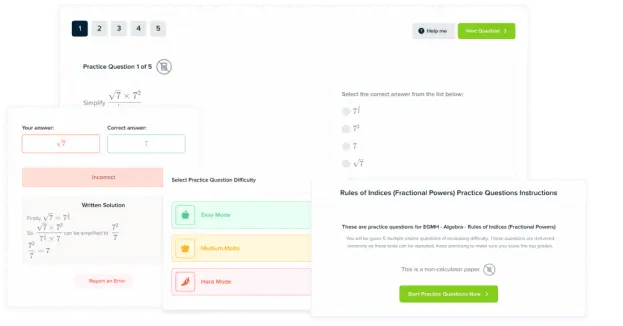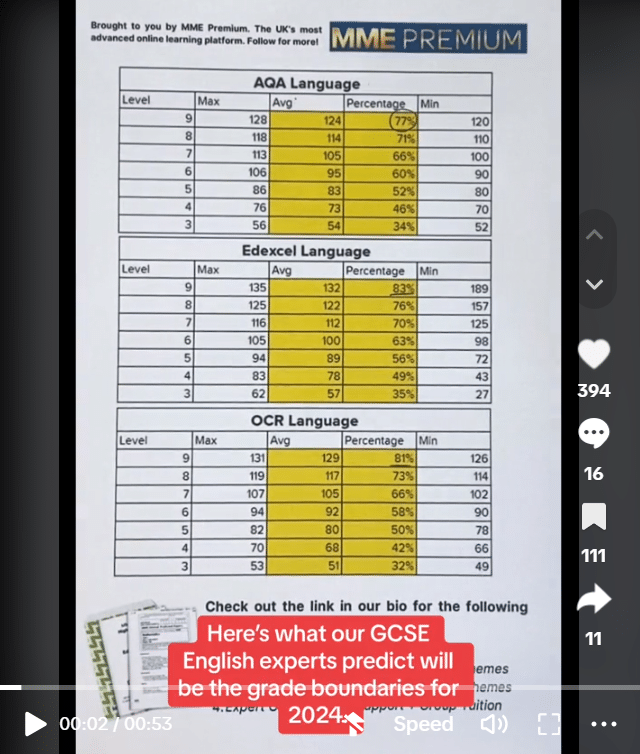AQA: Paper 2 Phrase Bank
AQA: Paper 2 Phrase Bank Revision
Paper 2 Phrase Bank
This page aims to give you an overview of some useful words or phrases for Paper 2.
Varying your word and phrase choice plays an important part in your writing.
We will cover topics such as introducing ideas, starting paragraphs, comparing sources, analysing and linking ideas, as well as sophisticated swap outs for some common phrases!
Phrases For Introducing Ideas
You can use these at the start of paragraphs, or to introduce a piece of evidence that backs up a point you have already made.
| Firstly… | To begin with… |
| Initially… | Importantly… |
| Significantly… | Here, the author has… |
| Secondly… | Thirdly… |
| Finally… | I will argue… |
| In my opinion… | It is my view that… |
Let’s see it in a sentence…
- Firstly, the author creates a sense of dread in the extract to set the tone.
- Here, the author has used a metaphor and humour to persuade the reader.
- It is my view that the statement is incorrect because of the amount of emotive language used to describe the park.
Phrases For Linking Ideas
Conjunctions or connectives in complex or compound sentences can link two ideas.
Linking your ideas, either back to the question or together in your paragraph, is an important part of the PEEL paragraph structure.
It also shows the examiner you have the ability to communicate clearly.
Coordinating Conjunctions
| …and… | …but… |
| …for… | …yet… |
| …so… | …or… |
| …nor… | Can you think of any more? |
Let’s see it in a sentence…
- The writer has used negative adjectives to describe the building and its inhabitants.
- This not only surprises the reader, but creates a sense of tension as well.
- Neither the building nor its inhabitants are described positively in Source A.
Phrases For Contrasting Ideas
Particularly in questions assessing AO3, varying phrases for comparison of ideas in your answer is important.
| In contrast… | On the other hand… |
| Despite that… | Although… |
| Likewise… | Conversely… |
| Similarly… | Equally… |
Let’s see it in a sentence…
- In contrast, the author of Source B uses an informal tone to persuade the reader.
- Likewise, Source A argues against new cycle lanes in the city.
- On the other hand, there are similarities in the way the writers of both texts have conveyed information regarding structure.
Phrases For Adding Ideas
When writing, you need to ensure that you write in a fluent, clear manner.
Below are some phrases to use when you need to expand or add new information on a point without disrupting the flow of your answer!
|
In addition… |
Furthermore… |
|
Moreover… |
It could also be said that… |
|
After this… |
Subsequently… |
|
This means that… |
Also… |
Let’s see it in a sentence…
- It could also be said that the writer uses rhetorical questions to further their aim.
- Moreover, Source A takes a more formal tone than Source B.
- Furthermore, the writer of Source B introduces this notion using a similar technique.
Phrases For Analysing
Analysing the effects or use of language, structure and form is key in your answers during the reading exam.
Varying phrases to analyse can be based on what you find, and the angle you take on it.
|
This highlights… |
Structure is used creatively through… |
|
The technique suggest… |
The author presents… |
| This implies that.. |
This shows that… |
Let’s see it in a sentence…
- This highlights to the reader the importance of the march.
- Here, the author presents the joy felt by the students after their exam was over.
- Structure is used creatively through the use of a zooming-in structure as the text progresses.
Phrases For Comparing
These can be used in AO3 questions particularly.
| Although… | Equally… |
| In the same way… | However… |
| Both sources use… | While Source A uses… Source B on the other hand… |
Let’s see it in a sentence…
- In the same way, Source A uses emotive language to describe the carnival.
- However, Source B creates a more sombre tone through the use of short sentences and lack of dialogue.
- Both sources use rhetorical questions to involve the reader.
Sophisticated Swaps
On the left are some examples of colloquial phrases, with their sophisticated counterparts on the right.
| The author tries to say… | Here, the author implies… |
| Next, I will talk about language…. | Furthermore, the language technique… |
| Because of this… | Consequently… |
| In this way… | Thus… |
| Besides… | Moreover… |
Let’s see it in a sentence…
- Here, the author implies that action needs to be taken urgently.
- Furthermore, the language technique creates imagery, making it easier to envisage.
- Consequently, the reader is invited to feel sympathy towards Sarah.

MME Premium Membership
£19.99
/monthLearn an entire GCSE course for maths, English and science on the most comprehensive online learning platform. With revision explainer videos & notes, practice questions, topic tests and full mock exams for each topic on every course, it’s easy to Learn and Revise with the MME Learning Portal.
Sign Up Now


